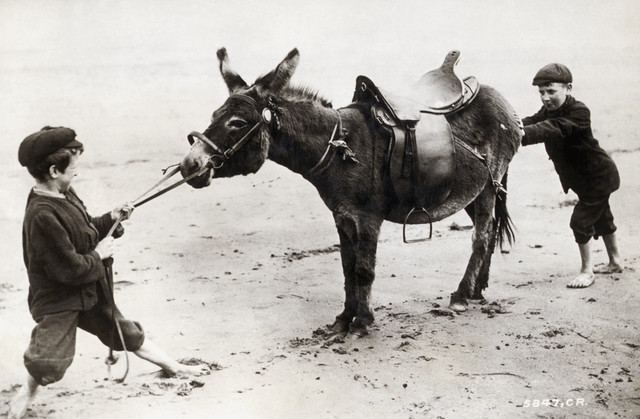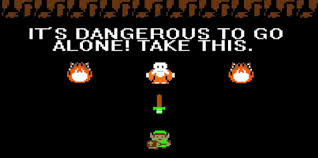|
Have you every listened to someone who is a terrible storyteller as they tried to summarize a movie plot or recall a life event. Perhaps they got easily distracted by insignificant side stories. Or maybe the details were disjointed and jumped around. Did they leave something important out, only to later wedge it in at the conclusion? Whatever their struggle, it assuredly had the effect of breaking your engagement with the tale.
Editors have long lists of common mistakes that they look for in writing, especially if the author is a novice. Many of the issues, such as head-hopping perspectives and info dumps, have the effect of damaging a reader’s engagement. Too much information results in boredom and distraction, while too little makes a world feel parched and uninteresting. Unorganized details cause confusion. Authors must be vigilant in rooting out such weaknesses in their writing. You the author have spent hours wrapping your mind around the character, setting, and backstory. Your readers, however, are experiencing everything with fresh eyes. Be mindful of them and their perspective gap. The lessons to be learned are too many to be covered in a brief article, but here are some quick pointers.
2 Comments
The debate between pantsing and plotting is, to my knowledge, well known within writing circles but mostly unheard of by everyone else. To those who are unfamiliar with the terms, pantsing is making a story up as you write (in other words, "by the seat of your pants"), and plotting requires laying out the story's narrative skeleton before putting figurative pen to paper.
Some authors try to claim one way or the other is the "correct" approach to writing. You can ignore those people. They probably ate too many paint chips. They also probably kick puppies. Instead heed the advice of most authors: pantsing and plotting are two means to the same goal, and you should use the one that naturally works for you. If you feel more creative and free when pantsing, then go for it, no matter how awkward the statement I just wrote may sound. If plotting helps you to focus on writing because it gets planning out of the way first, then have at it. The two methods are not mutually exclusive, however. In fact, I believe you should use both if writing something of novella length or longer. Try gaining advantages of the other method while sticking primarily to your own. For example, pantsed stories almost invariably requires far more editing after draft one. Having a few milestones planned out, such as critical plot moments, helps you to stay on track. Pantsing is notorious for inefficiency and unfocused narratives. On the other hand, if you're a plotter like me, you have much to learn from those insane, free-spirited pantsers. While your world-building may require advanced planning, your narrative can flourish if unchained from your original plan from time to time. Keep in mind that your first ideas are not always your best. Until the moment that a story goes to print, be open to new character and plot ideas that pop up. Image by © Bettmann/CORBIS In Writing Tidbit #2, I discussed the importance of getting feedback on your writing from others. It can be an intimidating process, one which makes writers feel extremely vulnerable. The bottom line is you should do it anyway.
Another concern about critiques is losing one's own creative vision and "voice." If others are defining our writing for us, is the story truly ours? The issue of hijacked manuscripts is rare but legitimate. Part of the solution is finding the right kinds of beta-readers and editors. But the primary defense is knowing when to turn a deaf ear. Yes, you do not have to do everything an editor says. If the feedback points out a legitimate spelling or grammar error, then under almost every circumstance, the advice should be followed. If the critique is from someone knowledgeable in the specific genre or business of writing, then their advice is correct more often then not. But what if they're trying to take your writing in a new direction, one which contrasts with your vision. Consider the following recommendations that have been said to me:
Being rather stubborn, I've not had a lot of troubles with ignoring a percentage of editors' advice. Other writers have told me that knowing when to disagree is a challenge. Because every example is unique, I cannot give a concise pearl of wisdom in this matter, but I can suggest three questions to ask yourself when sifting out misguided advice:
In honor of all those crazy folks doing National Novel Writing Month, I present The NaNoWriMo Family Takes a Road Trip
Dad: Check out the odometer. Another 5,000 words down- Mom: LOOK OUT! Dad: What? Mom: You just hit a typo. Dad: (silence) Mom: Should we go back to help it out? Dad: There's no time. Mom: But what if we don't see it on the way back- Dad: THERE'S NO TIME! klunk-klunk Mom: Would you PLEASE pay attention. You hit another one. klunk-KLUNK Mom: And now you've hit a grammatical mistake! Just pull over to let me drive. Dad: No, I've got this. Mom: At least pull over so we can use the restroom. Dad: There's no time! Here. Use this soda bottle. Mom: Well, would you at least hand me the map so I can plot our course? Dad: Plotting? We'll never get there if we do that. Kid: Are we there yet? Dad: No! We have 35,000 more words to go, and if you keep asking, I will turn us around at the next paragraph. Mom: Watch out ahead. Cops like to sit at this word sprint. Kid: Susie said her mom only has 20,000 more words left. Dad: Well, hurrah for Susie's mom. Some of us actually type words that are longer than two syllables long. Kid: Susie said her mom's book is better than yours. Dad: Well, you can tell Susie that now she's dying in chapter 16. In Writing Tidbit #1, I said that writing for realsies is not something to be done alone. You need to seek feedback on your work in order to help you improve. This means that, yes, others will be critiquing you and pointing out flaws. That can feel very intimidating, raw, and painful when the subject of criticism is something as personal as a story you've written.
I know no better way to respond to this than to say, "Suck it up and do it anyway." While there are exceptions, most people knowledgeable in writing have no interest in hurting the feelings of beginner writers. They like to see others succeed, and they know the value of critiques when looking for ways to improve. So take their comments for what they are: advice to help you get better. Though it may be hard, try to not be overwhelmed or angry when someone doesn't exactly love your plot or characters. Instead, listen for hints on how to be better and create a story they will love. Do not think of an editor's red marks as an attack on your talent and love of writing, because they're far from it. Similarly, don't put too much value into a friend or family member's gushing praise of your writing. We can all use a pat on the back, and it's nice of them to review your work. Their opinion that you're the best writer since (insert famous writer's name) may be accurate, but do get some outside, expert opinions before approaching publishers with your listless, grammatically incorrect project. Such a gesture will only make them leery of your work in the future. When people think of the writing lifestyle, they imagine hours alone, seated at a keyboard, hobbled by a crazed fan. While there may be more than a little truth to this, especially if the writer is a character in a Stephen King novel, the reality is that successful authors don't make it on their own. They need a team of supporters, especially in the early years of their career. It's difficult to judge one's own strengths and weaknesses in writing. The author is too close, too attached to the words to make a completely accurate self-assessment. Add onto that the difficulty of filtering the readers' expectations and opinions. Bottom line: don't expect to write a best-seller without others' feedback.
While in school, we have teachers who evaluate and help us improve our writing. What critical resources exist beyond graduation?
Don't write in a vacuum. If you intend to publish for a wide audience someday, you need to let a smaller audience help you refine the early, uglier drafts. |
CW BriarIn addition to firsthand experience with writing, I've attended numerous classes and conferences on the subject. I pass along that learning here. Archives
February 2016
Categories |


 RSS Feed
RSS Feed